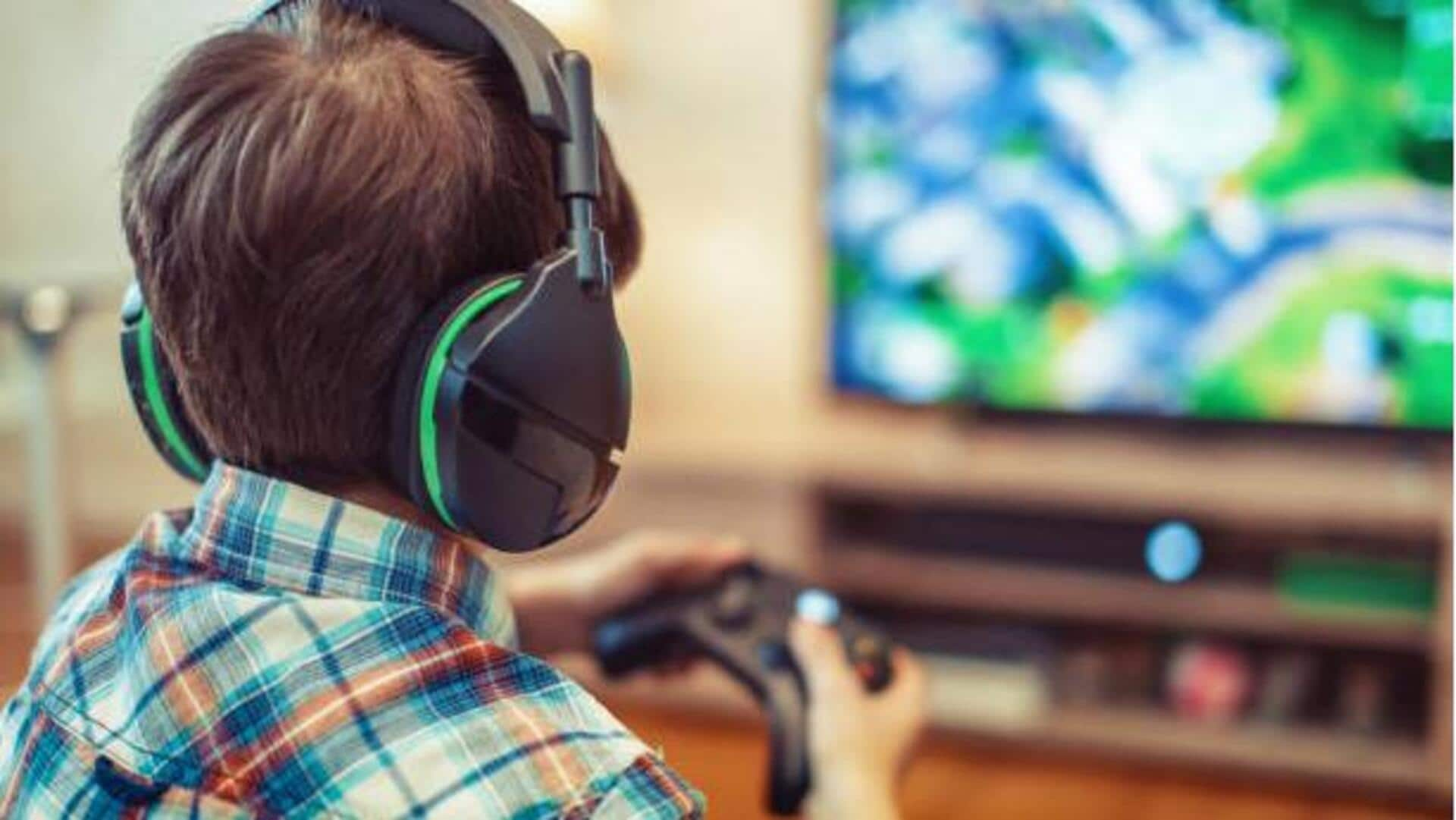
Playing video games may boost your kid's IQ: Study
What's the story
A recent study suggests that playing video games is associated with a boost in a child's intelligence quotient (IQ). The research, published in the journal Scientific Reports, challenges some narratives that gaming might be detrimental to young minds. The findings were based on data from 9,855 American children aged nine or 10 years and their screen time habits over two years.
Study details
Gaming v/s other screen time activities
The study found that children who spent more time playing video games than their peers saw an increase of 2.5 IQ points above the average rise. This was measured through tasks testing reading comprehension, visual-spatial processing, and a test of memory, flexible thinking, and self-control. The researchers also considered factors such as genetics and socio-economic background to ensure accurate results.
Broader implications
TV, social media use found neutral
The researchers also looked at the effects of other screen time activities like watching TV and social media use. They found that neither had a positive or negative effect on intelligence. This finding could help settle the ongoing debate about how much screen time is appropriate for children. The study was conducted by a team from the Netherlands, Germany, and Sweden, who said in their paper, "Digital media defines modern childhood, but its cognitive effects are unclear and hotly debated."
Research significance
Lead author's statement on gaming and intelligence
The study's lead author, Torkel Klingberg, a neuroscientist at the Karolinska Institute in Sweden, said in 2022 that their results support the idea that screen time doesn't harm children's cognitive abilities. He added that playing video games is associated with an increase in intelligence. This research is one of many suggesting a connection between gaming time and cognitive development in children.
Future studies
Future research directions
The researchers behind this study hope to clear up the conflicting reports about screen time's impact by using larger sample sizes, different study designs, and accounting for genetic and socio-economic factors. Klingberg said they didn't look at how screen behavior affects physical activity, sleep, well-being, or school performance in this study. He added that they will now be investigating other environmental factors and their cognitive effects on childhood brain development.